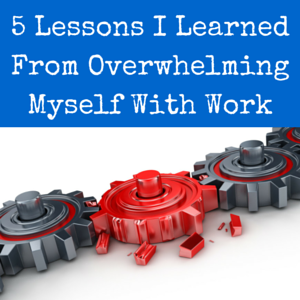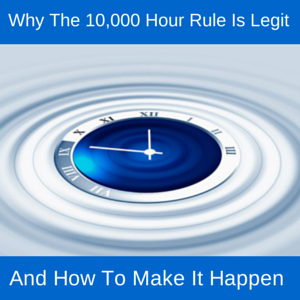
If you do something every day for about 66 days, it becomes a habit. Something that you couldn’t imagine doing at all suddenly becomes common in your life a little over two months later. When 2015 began, one of my family’s goals for the year was to sell the piano in our garage.
In mid-August we made a sale, but by a stroke of luck, it was that moment when I wanted to play the piano every day. I hadn’t even touched it for a few years. Now I wanted to play it every day. Sale canceled.
My decision shocked us all. I knew at that point I was automatically committed to playing the piano every day. However, I had to build the commitment. A few months later and now I’m playing the piano every day.
On some days, I am playing the piano for more time than I spend on my business. How did that happen? The first reason is because I quickly fell in love with it. The second reason is that I set forth a plan to get me from Day 0 to Day 66. I knew that once I was playing the piano on the 66th day, it would be effortless for me to play the piano every day.
As a productivity expert, I knew many tricks of the trade. The best way to perform a task every day is to give yourself a productivity spreadsheet. For the piano, I would identify what songs I had to play and what exercises I had to perform to allow my fingers to cover a greater range of the keyboard.
Before I turn this blog into a musical blog, I’ll shift back to business. You don’t have to play the piano to utilize this method. In fact, I use productivity spreadsheets do create videos for my training courses every day. Productivity spreadsheets are the main reason why I can create numerous videos every day but still have time for the piano.
Productivity spreadsheets work like this:
#1: Have A Physical Calendar
Yes, a physical one. I am what some people would call a digital native. Just as people describe this current generation as Generation Z, many people refer to the people in this generation as the digital natives.
However, this is something that you can’t do on a device. There is something about writing down your dreams and goals on a piece of paper that you don’t get by typing them on the screen.
I tend to take a piece of paper and fill in the boxes and form my calendar. All of the boxes and numbers are drawn on the paper with a marker. That’s how seriously I take the idea of having a physical, non-digital calendar. And I’m a digital native. Let that sink in.
#2: Apply The Seinfeld Method
The Seinfeld Method is one of the best ways known to mankind to stay accountable. You simply put an “X” on all of the days that you complete the task. Then, keep the streak of “X’s” going. I used to have a calendar of “X’s” for playing the piano every day. Each time I could write another “X” on the calendar, I felt more accomplished.
I no longer have a calendar for “X’s” for playing the piano because it’s habitual. I don’t even think about it. I just do it.
That’s all a productivity spreadsheet is (fine, you can call them calendars but I personally think spreadsheet sounds cooler). However, how do we fully utilize those productivity spreadsheets so they allow us to be more productive? These are two power tips:
#1: Identify What You Will Do The Night Before
The best time to plan your day is the night before. At nighttime, we aren’t in the rigorous workflow state of the mind. At night, we tend to be more creative since there are fewer boundaries. Think about what your schedule looks like at 1 pm. You could be doing so many different things at 1 pm.
So, as an extreme example, what are you doing at 1 am. Chances are you aren’t working. You are either sleeping or are absolutely fried.
The longer we stay up, the less productive we become. It is at this time, just before going to bed, when we need to identify what we will do on the following day. That way, we can wake up knowing what we must accomplish.
You don’t want to think about what your day will comprise of in the morning because at that point, you are losing too much valuable time. Your first hour dictates how the rest of your day goes. Have a productive first hour, and you will probably have a more productive day.
#2: Take The Path Of Least Resistance
Let’s say you want to create video every day and turn that into a habit. You have done some videos here and there but are still not super comfortable with the whole process. I give you two options:
- You must complete at least one five-minute video per day
- You must complete at least 10 five-minute videos per day
It would be more incredible to do the 10 videos. However, that’s not how we become productive. We are creatures of habit who hate dramatic changes. We can achieve dramatic changes by taking one step at a time.
Most people like to view dramatic change as a colossal leap. That colossal leap is simply the combined total of a series of smaller leaps taken in advance.
To turn a task into a habit, you must perform that task every day for 66 days. It is easier in the beginning to turn one video per day into a habit than it is to turn 10 videos per day into a habit. Focusing on completing a minimum of one video per day allows you to build a strong foundation. That strong foundation results in habit formation.
Finally, once you have the strong foundation, and you choose to strengthen it, you can eventually get to the point of completing at least 10 five-minute videos per day.
In the beginning, you aren’t going for workload. You are going for consecutive days of completion. Only pay attention to the workload after the 66th day.
In Conclusion
If you want to turn your newest tasks into effortless habits, then you need to create productivity spreadsheets for those tasks. The key to becoming productive is to do a little bit each day. Once you have a solid foundation, you can begin to expand upon that foundation.
What are your thoughts about the productivity spreadsheet method? Which of these methods did you like the most? What are your tips for boosting productivity? Sound off in the comments section below.




